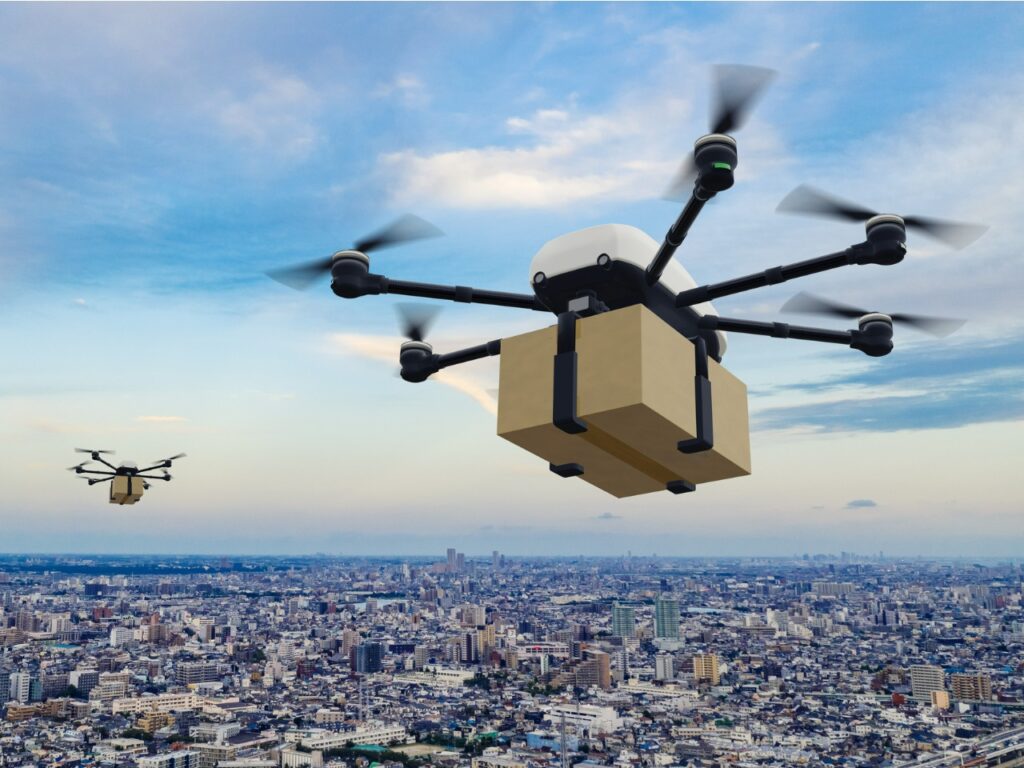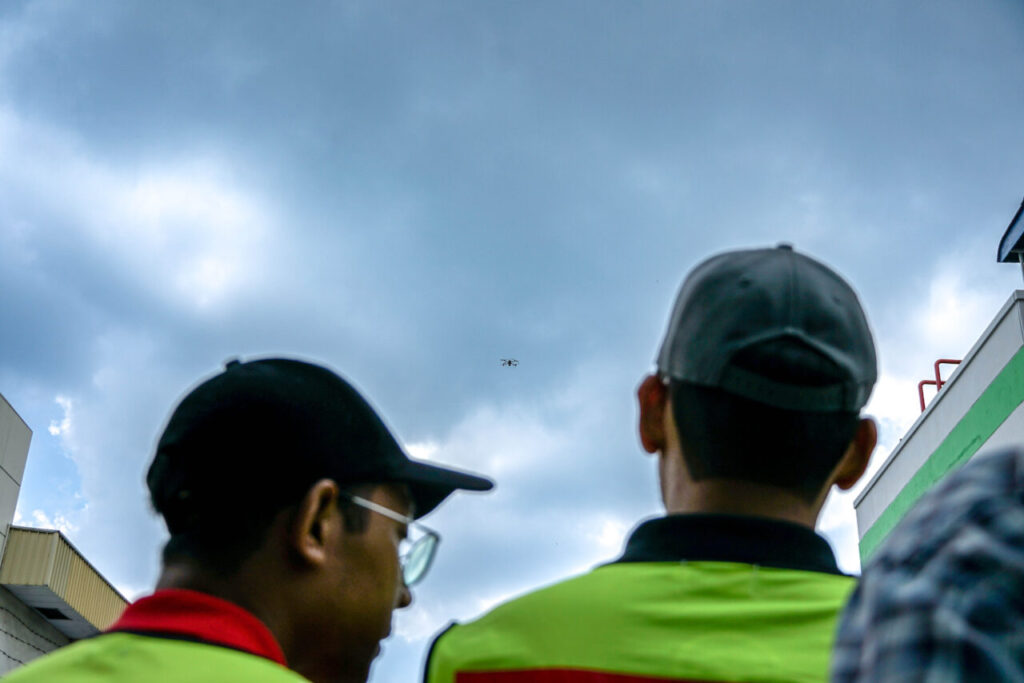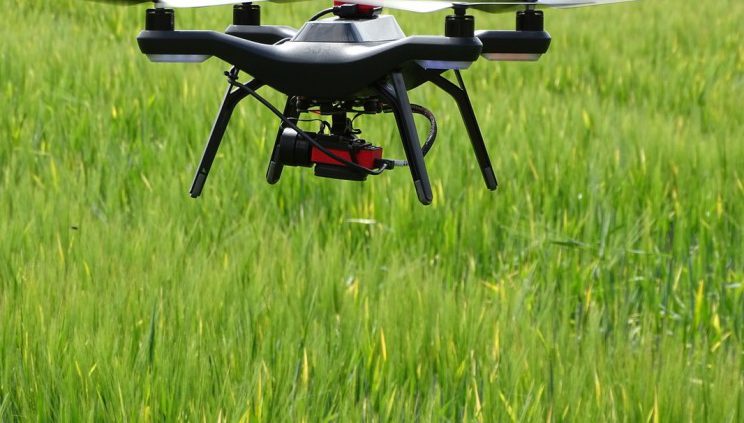Introduction
In recent years, the concept of delivery drones has captured the imagination of technology enthusiasts and logistics companies alike. These unmanned aerial vehicles (UAVs) hold the promise of revolutionizing the way goods are transported, offering faster and more efficient delivery options. With advancements in technology and the regulatory landscape evolving, delivery drones are rapidly becoming a tangible reality. This article explores the potential of delivery drones and their impact on the logistics industry.
What is Delivery Drone?

A delivery drone, also known as an unmanned aerial delivery system or UAV, is an autonomous aircraft designed to transport packages and goods from one location to another. These drones are equipped with advanced technology, including sensors, GPS navigation systems, and cameras, to ensure precise flight paths and obstacle avoidance. Delivery drones have the potential to significantly improve the speed, efficiency, and cost-effectiveness of last-mile deliveries, offering a greener and more innovative solution to traditional ground-based transportation methods.
8 Benefits of Delivery Drone
Delivery drones offer several benefits in the field of logistics and transportation. Here are some key advantages of using delivery drones:
Faster Delivery
Delivery drones can significantly reduce delivery times by passing traffic congestion and taking direct routes. They can fly at higher speeds than ground-based vehicles, making them ideal for urgent or time-sensitive deliveries.
Improved Efficiency
With the ability to navigate through the air, delivery drones can avoid roadblocks, construction zones, and other obstacles that may slow down traditional delivery methods. This enhanced efficiency allows for quicker and more reliable delivery of packages.
Cost Savings
Implementing delivery drones can lead to cost savings for businesses. They eliminate the need for human drivers and reduce fuel consumption associated with traditional delivery vehicles. Over time, this can result in lower operational costs for logistics companies.
Access to Remote Areas
Delivery drones can reach remote or hard-to-reach locations where traditional vehicles may face challenges. This is particularly beneficial for delivering supplies to rural areas, islands, or regions, with limited infrastructure, ensuring prompt delivery of goods to those in need.
Environmental Sustainability
Delivery drones offer a greener alternative to traditional delivery methods. They run on electricity and produce zero emissions during operation, contributing to a cleaner and more sustainable transportation ecosystem. This helps reduce carbon footprint and mitigate the impact of transportation on the environment.
Enhanced Safety
Delivery drones can enhance safety by reducing the number of delivery vehicles on the road, minimizing the risk of accidents and traffic-related incidents. Additionally, they can be equipped with advanced collision avoidance systems and sensors to ensure safe and reliable operations.
Flexibility and Scalability
Delivery drones provide flexibility in terms of their size and payload capacity. They can be designed to carry small packages or larger payloads, depending on the specific delivery requirements. Moreover, drone delivery networks can be easily scaled up or down to accommodate varying delivery demands.
Novel Customer Experience
Drone delivery offers a unique and exciting customer experience. The sight of drone landing at one’s doorstep to deliver a package can create a memorable and convenient interaction, enhancing customer satisfaction and loyalty.
How Delivery Drones Transform Industries
Delivery drones have the potential to be applied to a wide range of industries. Here are some key sectors where delivery drones can make a significant impact
E-Commerce
Delivery drones can revolutionize the e-commerce industry by enabling faster and more efficient delivery of online orders. They can transport small packages directly from fulfillment centers to customers’ doorsteps, reducing delivery times and improving the overall customer experience.
Retail
Retailers can utilize delivery drones to offer same-day or even on-demand delivery services to customers. This applies not only to traditional brick-and-mortar stores but also to grocery stores, pharmacies, and other retail establishments.
Healthcare

Delivery drones can play a vital role in the healthcare industry. They can transport medical supplies, pharmaceuticals, and even organs for transplantation in a timely manner, especially to remote or inaccessible areas where immediate delivery is crucial.
Food Delivery
Delivery drones can be used to transport food from restaurants or food delivery hubs directly to customers’ locations. This can enhance the speed and efficiency of food delivery services, especially in crowded urban areas.
Logistics and Supply Chain
Delivery drones can streamline logistics and supply chain operations, particularly for last-mile deliveries. They can complement existing transportation networks by handling smaller, time-sensitive packages, reducing overall delivery costs, and increasing operational efficiency.
Disaster Relief
Delivery drones can provide crucial assistance in disaster-stricken areas where infrastructure has been damaged or destroyed. They can deliver emergency supplies, medical aid, and communication equipment to affected populations quickly and efficiently.
Agriculture
Delivery drones can be used in the agricultural sector for tasks such as crop monitoring, pesticide application, and seed planting. They can help optimize farming operations, improve crop yield, and reduce the need for manual labor.
Construction and Engineering
Delivery drones can transport tools, equipment, and materials to construction sites, eliminating the need for ground-based transportation and reducing project timelines.
Conclusion
Delivery drones represent a promising frontier in the logistics industry, offering significant advantages in terms of speed, efficiency, cost-effectiveness, and environmental impact. While challenges remain, the ongoing developments in technology and regulatory framework are paving the way for the future where drones will play a crucial role in the last-mile deliveries. As these aerial vehicles take flight, the way we receive goods is set to undergo a transformation, making delivery drones an exciting prospect for businesses and consumers alike.




